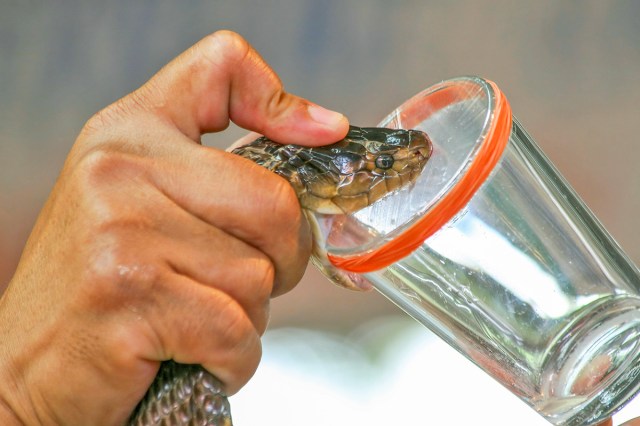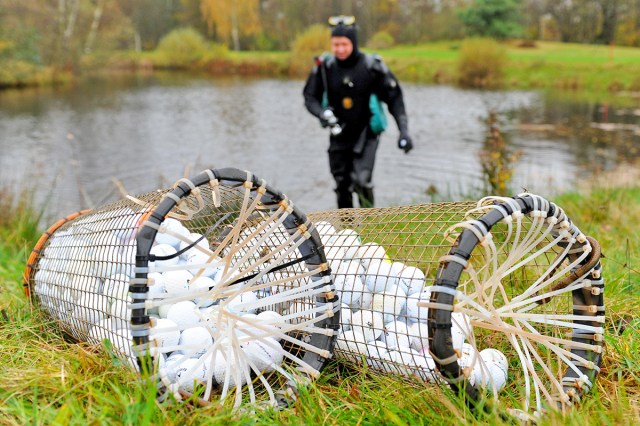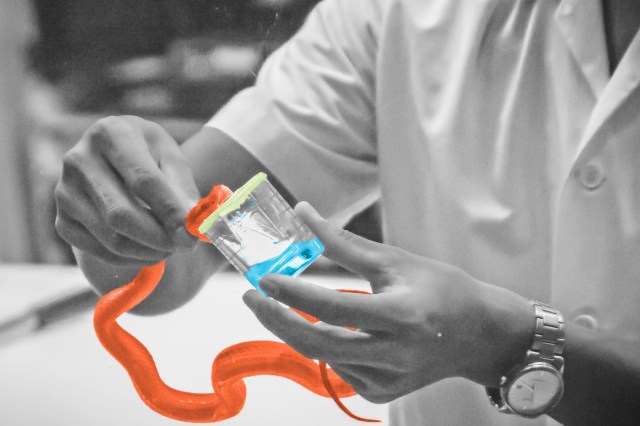
Professional Mourner
The job of paid mourner is an ancient one. The profession is believed to have begun in China and the Middle East, and was known to exist in classical Egypt, Greece, and Rome. It’s also mentioned on more than one occasion in the Bible. And this peculiar profession has not died out. In China, professional mourners are celebrated for their kusang — which means “crying and shouting” — for which they can earn significant fees. And in Taiwan, career mourners such as Liu Jun-Lin have become famous for ostentatious emotional outpourings at funerals, where they sing, cry, and wail in equal measure.
The profession isn’t limited to Asia. In Greece, professional mourners, known as moirologists, are paid to stand at gravesides, wailing and pulling their hair. Such services are also found in the U.K., where companies such as Rent A Mourner offer professional grievers for about $68 for two hours of crying.

Snake Milker
Professional snake milkers are paid to extract venom from venomous snakes for use in medical research, antivenom production, and pharmaceutical development. But how, you may be thinking, do you milk a snake? Well, it’s not something you should try at home. Highly trained snake milkers draw out the toxic secretion by carefully grasping the snake behind its head, then encouraging it to bite down onto a collection vessel to inject its venom. They then collect the venom as it drips from the serpents’ fangs.
The liquid can be processed into a freeze-dried powder to be sold to research laboratories that develop drugs to treat everything from blood clots to heart attacks and high blood pressure — and, of course, to make antivenom to save people who are bitten by venomous snakes.

Professional Line Stander
People tend to hate standing in line, especially when the queue is likely to last for hours. Perhaps inevitably, some entrepreneurial individuals have realized that they can make a living standing in line for other people. Whether it’s for a popular restaurant, concert tickets, or the release of the latest iPhone, professional line standers (also known as line sitters) are willing to wait — for a fee.
In the U.S., the trend started mainly on Craigslist and TaskRabbit, where individuals began offering their line-standing services. It grew from there, and now fully fledged line-standing companies have sprung up, such as Same Ole Line Dudes — calling itself “New York’s premier team of professional line sitters” — which charges a $50 minimum for two hours of waiting.
More Interesting Reads

Golf Ball Diver
Water hazards at golf courses have created a unique occupational niche: professional golf ball diver. These underwater collectors agree on terms with golf course managers, with the course charging the diver a fee to plunder the ponds, lakes, and water traps scattered around the green. The divers then clean, refurbish, repackage, and resell the balls.
In the United States, at least 200 million golf balls are lost each year, many of which end up in the water, meaning hardworking golf ball divers can earn a pretty penny. On average, golf ball divers are reported to make between $50,000 to $100,000 a year. In 2015, one golf ball diver, Glenn Berger, claimed to have earned $15 million over 14 years of retrieving lost balls from golf courses all around Florida.

Watching Paint Dry
We’ve all heard the expression “like watching paint dry” to describe something particularly boring or tedious. But for some people, watching paint dry is a fundamental part of their daily workplace activities. Take, for example, English research scientist Thomas Curwen, who works for the international paint company Dulux. His full-time job involves observing the changing colors and particles of paint as it dries, both on walls as well as under a microscope, at times magnified by as much as 25,000, revealing a whole new — and far more stimulating — side to drying paint.
Then there’s research and design technician Matthew Risbridger, who spends his workday watching paint dry at AquaTec Coatings in Wrexham, Wales. He looks for cracks, bubbles, or any other defects to ensure ideal outcomes for the paint, which is also subjected to infrared heaters, wind tunnels, and ovens to see how it reacts under different conditions.

Professional Sleeper
Being paid to sleep sounds like a dream job — both figuratively and literally. Professional sleepers do just that, to support a range of research areas. Clients may include hotels, bed and mattress manufacturers, sleep research facilities, and pharmaceutical companies. NASA and the European Space Agency have also put out calls for professional sleepers, offering $19,000 to anyone willing to stay in bed for at least two months, to research how the body changes in weightlessness. (Those participants had to endure muscle atrophy and other physical challenges, making the job not quite as pleasant as it sounds.)

Pet Food Taster
The global pet food market was valued at $130.8 billion in 2024. It’s big business, so getting ahead takes dedication and expertise. Enter professional pet food tasters, quality control specialists who evaluate pet food using their own senses — they smell it, taste it, and rate it. It may sound gross, but when pet food tasters are given a fresh can of cat or dog food to try, they don’t tend to scarf the whole thing down. They’re more likely to sample it without actually swallowing, which is enough to evaluate the food for consistency, smell, and flavor. Pet food tasting positions range from largely unskilled part-time roles (basic tasting) to professionally trained positions that involve thorough nutritional analysis.












